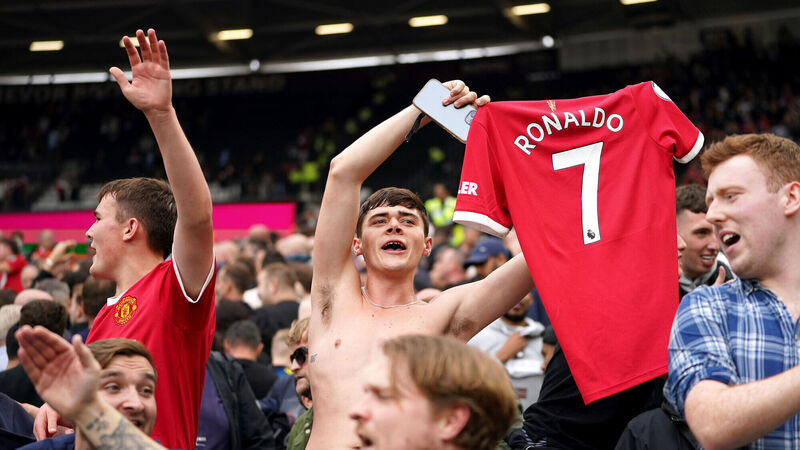Colin Sheridan: Manchester Utd through the eyes of Wright Thompson is a sight to behold

Manchester United fans celebrate after the Premier League win over West Ham. Picture: PA
Try from €1.50 / week
SUBSCRIBE
Manchester United fans celebrate after the Premier League win over West Ham. Picture: PA
“ Loving something as deeply as the people in this stadium love United requires a lot of remembering, remembering Nobby Stiles and Busby’s Babes, but it also requires a lot of forgetting, too. Forgetting Kathryn Mayorga. Forgetting that the Super League concept will almost certainly return. Forgetting all the times you swore you were finally done with a club that took your love and made you pay for the privilege”
— Wright Thompson, Super League rage, Ronaldo mania and the fight for the soul of Manchester United
Already a subscriber? Sign in
You have reached your article limit.
Annual €130 €80
Best value
Monthly €12€6 / month
Introductory offers for new customers. Annual billed once for first year. Renews at €130. Monthly initial discount (first 3 months) billed monthly, then €12 a month. Ts&Cs apply.
Newsletter
Latest news from the world of sport, along with the best in opinion from our outstanding team of sports writers. and reporters
Newsletter
Latest news from the world of sport, along with the best in opinion from our outstanding team of sports writers. and reporters
Thursday, February 12, 2026 - 2:00 PM
Thursday, February 12, 2026 - 3:00 PM
Thursday, February 12, 2026 - 3:00 PM

Select your favourite newsletters and get the best of Irish Examiner delivered to your inbox
© Examiner Echo Group Limited